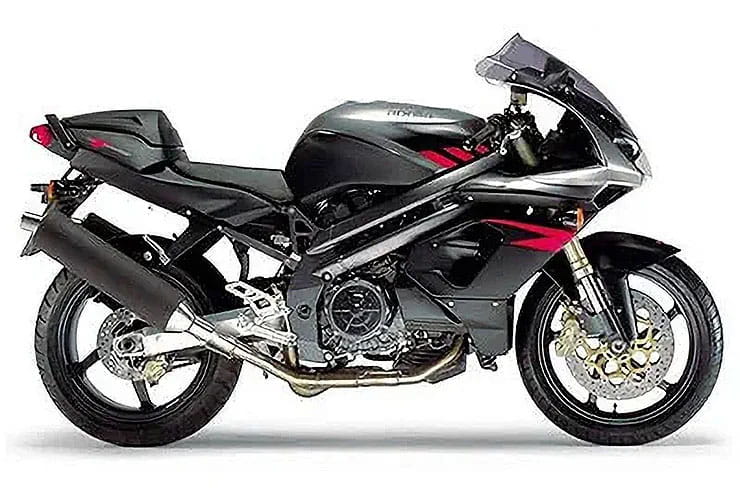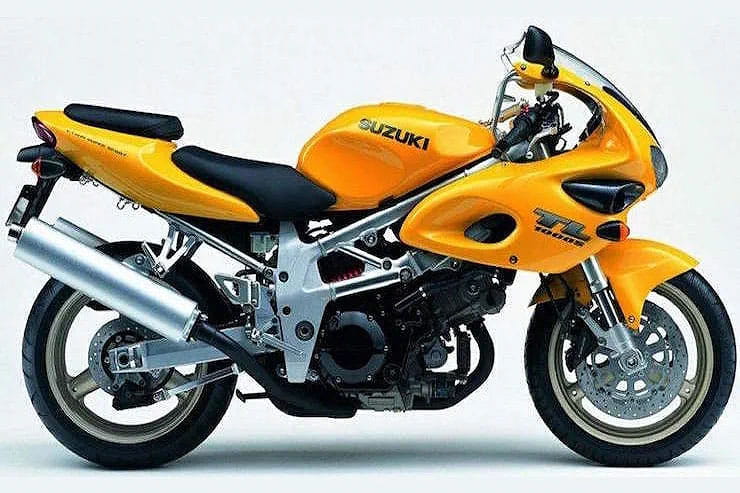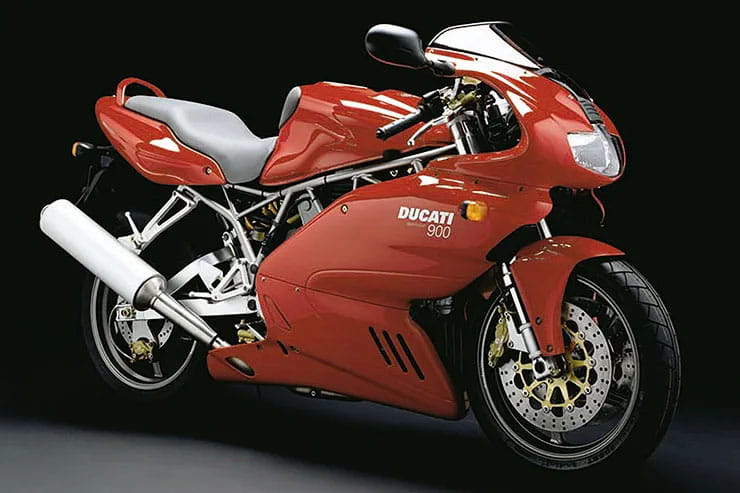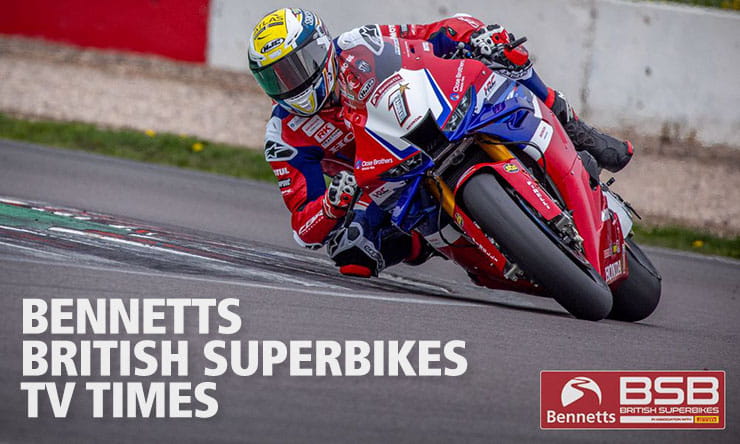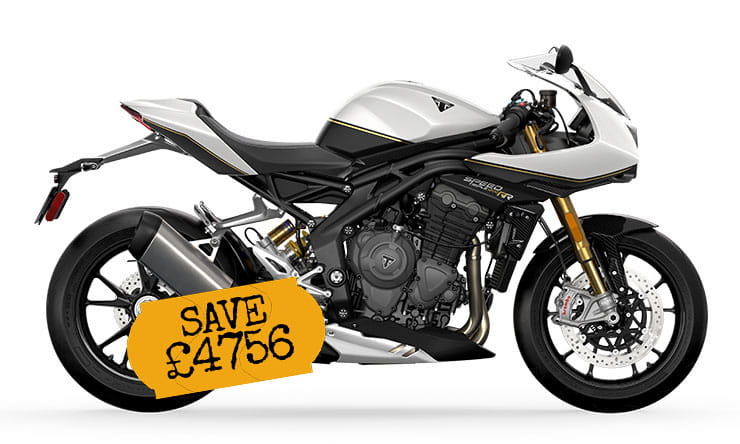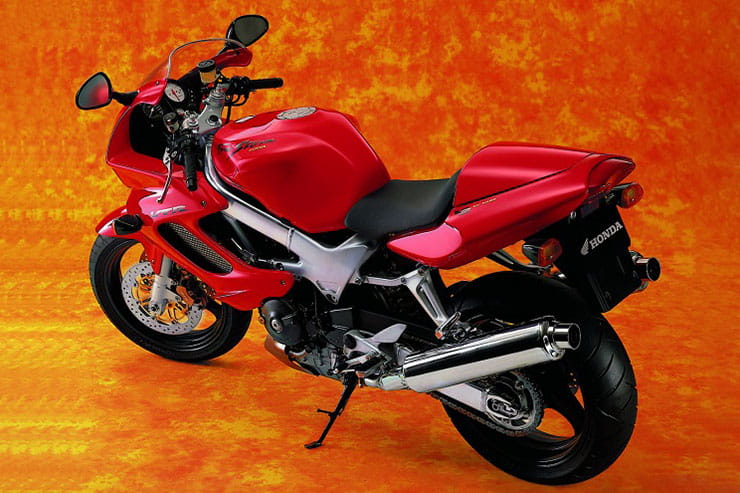
Price: £1000-£4000 | Power: 110bhp | Weight: 192kg | Overall BikeSocial Rating: 3/5
In the late 1990s the two-wheeled world was becoming obsessed by V-twin engines, in much the same way it has now all excited about parallel twin middleweights. Inspired (or more likely frustrated) by Ducati’s dominance in WSB, both Honda and Suzuki decided to explore this new engine configuration and towards the end of the 1990s the results emerged in the shape of the Honda VTR1000 Firestorm and Suzuki TL1000S. Not wishing to dwell on the TL-S, we will save that for another time, let’s focus on the more successful V-twin offering from Japan that doesn’t crack frames or tank slap...
Launched in 1997, the Firestorm borrowed fairly heavily from Ducati’s playbook but instead of a sportsbike (Honda’s V-twin race bike was to arrive a few years later), was much more a V-twin do-it-all in a similar vein to the Ducati SuperSport or the Aprilia Falco. A solid machine, the Firestorm has lots of fans and is plentiful in the used market. If you want a reliable V-twin that won’t leave your wrists aching after each ride, the Firestorm isn’t hugely sexy but it’s not a bad option and prices are pleasingly low.
Honda VTR1000 Firestorm (1997-2005) Price
Initially costing just under £8000, the Firestorm was quite a budget-conscious machine, not that its build quality necessarily reflected this. A decent seller, the fact it was popular has seen prices drop fairly low with tatty examples out there for just over £1000. These are generally best avoided and instead aim to spend about £1900-£2500 on a good one if you are happy with the early model (which has a smaller tank) or up it to £3000 - £3500 for a later ‘big tank’ generation. There are a few Firestorm for sale at the £4000 mark but that is a bit salty for an old bike (which isn’t a classic) and if you are happy to spend that much cash, there are better and much newer alternatives out there.
Pros & Cons
- Thumping V-twin engine
- Good reliability record
- Decent handling
- Poor fuel economy
- Increasingly hard to find a nice one
- Poor throttle response
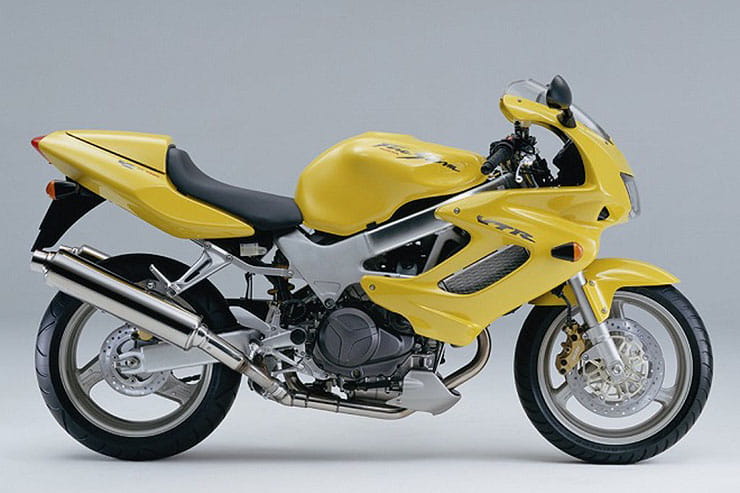
Engine and Performance
Did Honda just copy the Ducati 996? Well, the Firestorm is a 996cc 90-degree V-twin with a 98mm bore and 66mm stroke – which is exactly what the Ducati is. That said, the two bikes do feel very different to ride with the Honda making noticeably less power than the Duke, which is to be expected considering its role in life. And it is also much more reliable...
Thanks to conventional valve gear and a cam chain, the Firestorm is far less service-hungry than the Ducati and aside from regular 4000-mile services (oil, filter etc) the only major worry is the 16,000-mile valve clearance check. And it is cheap to do, with around £250 a service about average and just over £400 for the valve clearance check. Not that owners often pay for the minor services, they generally do it all themselves as the Honda is very easy to work on with good access. But it isn’t totally fault free...
Although generally very sturdy, there is one Achilles’ Heel on the Firestorm – its cam chain tensioner, especially on first generation models. A very weak area, it is the bugbear of many owners and needs regular swapping. Listen out for a nasty rattle on start-up (usually from the front cylinder) and if it is there, factor in a new tensioner (£132 for the unit but you might as well change both...) and a further £100 or so to fit them. Some owners go down the manual tensioner route, which isn’t really recommended on a road bike as it relies upon the previous owner knowing just how much tension to put on the cam chain.
Cam chain tensioners aside, the rest of the Firestorm’s motor is quite solid. Due to the exposed nature of the motor the front downpipe is known to rot and the occasional starter can also give up the ghost (a new unit is a terrifying £880, used are about £100) but generally, all is well. As you would expect on a big V-twin, careful balancing of the massive carbs (the last time Honda ever used them on a production bike) makes the bike run much sweeter and avoid it ‘coughing’ at low revs, so you may need to find an old-school mechanic who understand carbs or buy yourself a carb balancing kit.
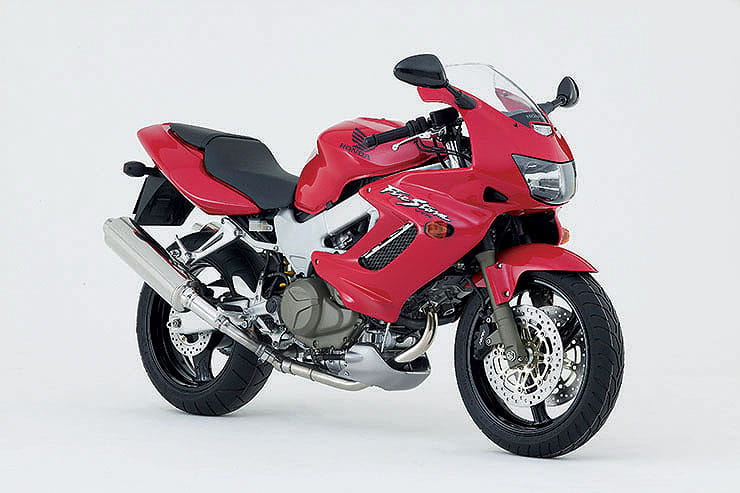
Honda VTR1000 Firestorm (1997-2005) Handling & Suspension
Honda did actually employ a few tricks on the Firestorm that belie its fairly relaxed nature. The frame uses the engine as a stressed member, the swingarm mounts directly to the crank cases and there are even side-mounted radiators to keep everything nice and slim. But it is far from a sportsbike and its suspension is pretty budget and its geometry set for relaxed riding. Is this a bad thing? Not at all...
If you aren’t too fussed about razor-sharp handling the Firestorm is a good day-to-day road bike. Never one to throw a tank slapper at you (cough, TL-S...), the Firestorm sweeps through bends with confidence and its low 810mm (it feels lower as the bike is so narrow) seat height makes it very reassuring for shorter or less experienced riders.
When buying used there isn’t much specific to worry about in terms of the chassis and it is more down to general old bike issues. Check the suspension for leaks, the linkages for seized parts and the brake calipers for any signs of sticking pistons but overall, the Firestorm is solid.
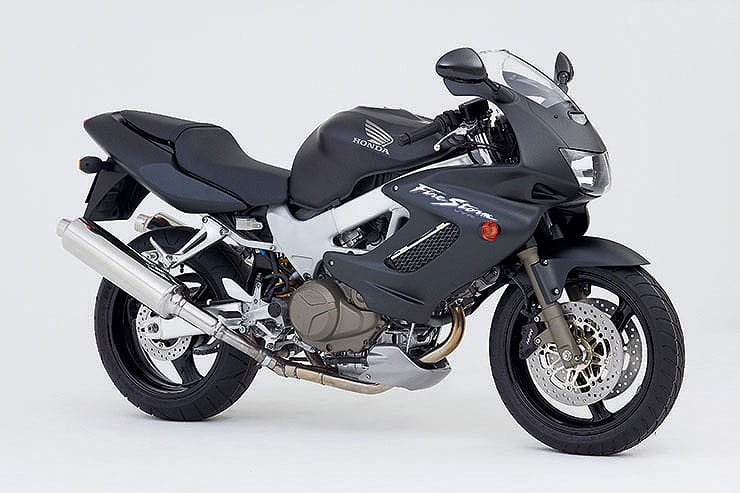
Comfort & Economy
Here is a major issue with the Firestorm – it does like to drink fuel. Owners report figures as low as 35mpg are quite common and that means the fuel light (annoyingly there is no gauge and the sender unit likes to pack up, leaving you with no warning light either) will come on (hopefully!) at around 100 miles as the early Firestorm only has a 16-litre tank. Honda did slightly rectify the situation in 2001 when they upped this to 19-litres and claimed to have helped the economy but in truth the changes aren’t reflected in the mpg figures and the range is only boosted by bout 20 miles. Which is a shame as the Firestorm is a comfortable bike.
For gentle cruising the Honda is a typical Honda product – comfortable and relaxed with minimal vibes and fairly well-placed bars. The half-fairing is a bit small but that’s not a huge drama (you can buy an aftermarket belly fairing to make it a full fairing) and with a taller screen fitted you can certainly cover miles on one. And owners do, it’s not uncommon to see a Firestorm with over 30,000 miles on its clocks.
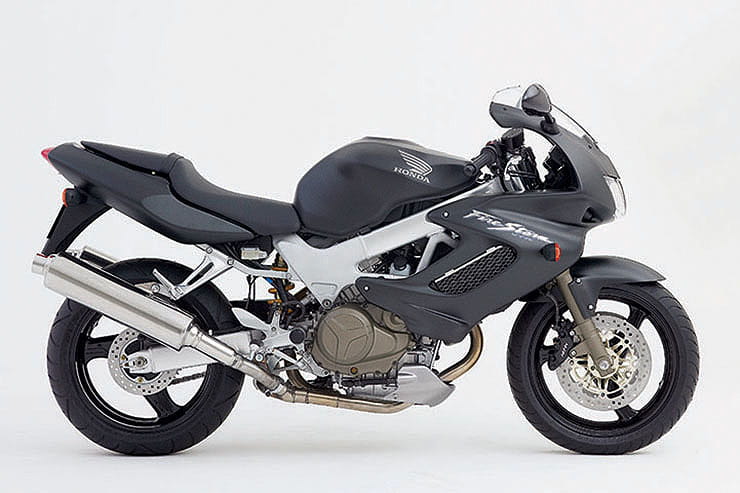
Honda VTR1000 Firestorm (1997-2005) Equipment
In terms of original equipment, the Firestorm is very limited. Like very limited. No fuel gauge, no ABS, no nothing. There again, it was a 1990s budget bike so what do you expect? Nowadays, however, that’s where you need to be a bit careful...
A fair few Firestorms get modified with wider bars, full fairings and even upgraded suspension from other models fitted. The major worry here is the competency of the mechanic who did the work and generally, buying a standard (or as near as possible) bike is a much better idea. Uprated OE fork internals and a new shock are great to see but wide bars, new calipers etc are a bit more worrying as they can affect things like brake lines and the actual safety of the bike. Buy standard and keep it that way.
Firestorm owners are after a budget bike that looks good and has a bit of V-twin character. There are a few die-hard fans but in general, they are bought on their price tag, engine and the Honda name on the tank.
Aprilia Falco (1999-2005) | Approx Price: £1200-£3500
Power/Torque: 118bhp/70lb-ft | Weight: 190kg
Suzuki TL1000S (1997-2001) | Approx Price: £2000-£5000
Power/Torque: 125bhp/76lb-ft | Weight: 191kg
Ducati 900/1000SS (2002-2006) | Approx Price: £2000-£5000
Power/Torque: 84bhp/70lb-ft | Weight: 188kg
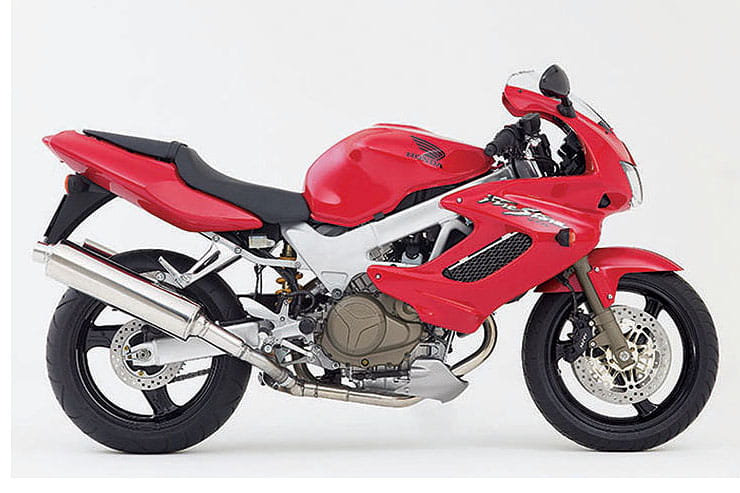
Honda VTR1000 Firestorm (1997-2005) Verdict
The Firestorm is very much a bike of its era – and that era was when the Japanese were desperately trying to replicate a bit of the magic that could be found in Italian bikes. That said, unlike Suzuki with the TL-S, Honda did actually produce a decent bike that looks good and has a solid V-twin engine. It’s not remarkable, and far from a classic, but the Firestorm is a solid workhorse that offers something a little bit different that an inline four can’t replicate. There are some very passionate Firestorm owners out there, and also heavily modified bikes (see the owners' meet article below), but generally this is a fairly cheap day-to-day machine that combines Japanese reliability with a small smattering of Italian-inspired flair. To be fair that’s not a bad combination...
If you’d like to chat about this article or anything else biking related, join us and thousands of other riders at the Bennetts BikeSocial Facebook page.
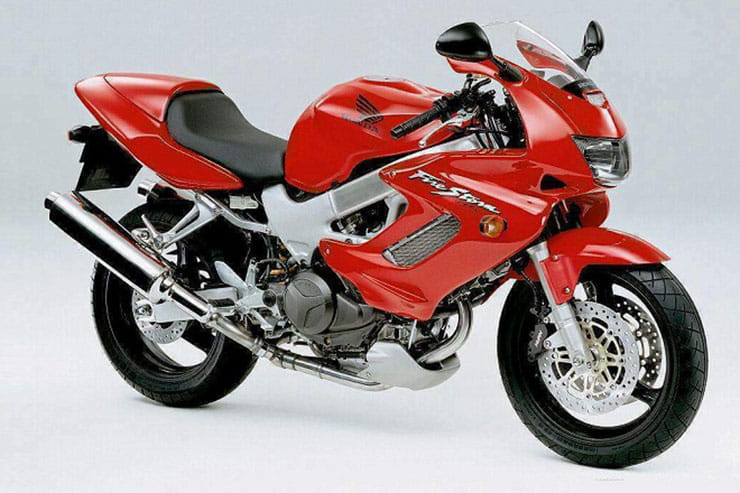
Honda VTR1000 Firestorm (1997-2005) - Technical Specification
|
Original price
|
£7995
|
|
Current price range
|
£1000-£4000
|
|
Capacity
|
996cc
|
|
Bore x Stroke
|
98 x 66mm
|
|
Engine layout
|
V-twin
|
|
Engine details
|
Liquid-cooled, 8v, DOHC
|
|
Power
|
110bhp (80.2kW) @ 9000rpm
|
|
Torque
|
71.5lb-ft (97Nm) @ 7000rpm
|
|
Top speed
|
155mph (est)
|
|
Transmission
|
6 speed, chain final drive
|
|
Average fuel consumption
|
35mpg
|
|
Tank size
|
16 (19 on post-2001) litres
|
|
Max range to empty (theoretical)
|
130 miles
|
|
Reserve capacity
|
25 miles
|
|
Frame
|
Aluminium twin spar
|
|
Front suspension
|
41mm conventional forks
|
|
Front suspension adjustment
|
Adjustable rebound and preload
|
|
Rear suspension
|
Monoshock
|
|
Rear suspension adjustment
|
Adjustable rebound and preload
|
|
Front brake
|
2 x 296mm discs, four-piston calipers.
|
|
Rear brake
|
220mm disc, one-piston caliper
|
|
Front tyre
|
120/70 – ZR17
|
|
Rear tyre
|
180/55 – ZR17
|
|
Rake/Trail
|
24.9°/97mm
|
|
Dimensions
|
n/a x n/a x n/a (LxWxH)
|
|
Wheelbase
|
1430mm
|
|
Ground clearance
|
n/a
|
|
Seat height
|
810mm
|
|
Dry weight
|
192kg
|
Looking for motorcycle insurance? Get a quote for this motorbike with Bennetts bike insurance








